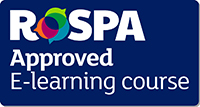Level 2 Food Hygiene and Safety for Early Years
The Level 2 Food Hygiene and Safety for Early Years course is designed to meet the needs of those who prepare food for the Early Years environment. This food hygiene course focuses on the importance of good hygiene when preparing food for children, controlling hazards, recognising allergens, and good practice, amongst other important food hygiene training areas such as the law governing food preparation.
Achieve your Level 2 Food Hygiene and Safety Certificate for Early Years today!
Amazing Discounted Training Offer for Early Years
Get:
Our Online Safeguarding in Early Years Course
And
This Online Level 2 Food Hygiene and Safety for Early Years course
For Only £36.00 + VAT
Quantity:
Discount codes cannot be used with our bundle offerings
If you have a specific training need and would like a custom bundle of courses, please contact our customer services team
£15.00 + VAT
Bulk Buy Discounts
10+ courses - Save 10%
20+ courses - Save 15%
50+ courses - Save 20%
75+ courses - Save 25%
100+ courses - Save 30%
Volume discount applied at checkout



Key Features of the Level 2 Food Hygiene for Early Years Course

The Level 2 Food Hygiene for Early Years Course is Suitable For:
Course Content
This training will introduce you to the importance of good food hygiene practice in the Early Years workplace. At the end of the module, you will:
- Be aware of what food hygiene and food safety are
- Be able to recognise common food hazards and how to prevent them
- Understand the importance of personal hygiene when in contact with food and food preparation areas
- Be aware of the different cleaning and disinfection methods and how these should be used in the workplace
- Understand what food poisoning is and how it can be prevented
- Know how to prevent pests
- Be able to demonstrate an understanding of how food safety laws and legislation apply to individuals in the workplace
This course is perfect for all food handlers in a non-supervisory role.
This does not form part of your final assessment, it is just a few Early Years based or general scenarios for you to consider to start you thinking about food hygiene in context.
This module will introduce you to the basic concepts of what food hygiene is and what some of the key terms such as ‘food handler’ mean. There will also be an introduction to the legislation that applies to those who work as food handlers and a discussion of the consequences of poor food hygiene and benefits of good practice.
In this module, you will study hazards you may find in the preparation of food. You will look at the four main groups that could constitute hazard before moving on to look at bacteria and the danger they can present. The module also looks at the main allergens, a vital area in the provision of safe food for the Early Years, and the importance of knowing safe cooking and storage temperatures.
Poor hygiene can play a significant role in the way a virus spreads. The Covid-19 pandemic has shown how important good hygiene routines are when it comes to virus prevention. This module will consider the prevention of viral contamination, in both an individual case and the wider context of food service.
Suffering from food poisoning is unpleasant for anyone. For some people, especially young children, it can be potentially deadly. As someone working in food preparation for the Early Years, you will need to understand the way that food can become dangerous, know the common symptoms of food poisoning and understand how it can be prevented.
Having clean hands and uncontaminated clothing can go a long way towards preventing hygiene issues. This module looks at what cleaning methods should be applied and when it is important to maintain personal hygiene. Other considerations such as protective clothing and staff hygiene rules will also make up part of the learning.
This module looks at the methods that can be employed to clean and disinfect the areas where food is prepared and stored. The correct use of cleaning fluids and other materials will help in maintaining a safe food environment. The importance of cleaning schedules and a stage cleaning process are also part of this module.
An invasion of pests can be more than a nuisance - it can be health hazard. The presence of some pests can even result in the closure of a business. This module will look at the common pests and how you can reduce the risk of infestation.
This is the final module of the teaching element of the course and it deals with the important subject of food safety management. When you are inspected, the inspecting officer will want to see that you have up to date, accurate records of your food safety regimen and that potential hazards are under control. The module will help you to comply with your legal requirements and inform you of what penalties you will face if you do not.
This is where you will apply the knowledge you have gained and, once you have passed your final assessment, obtain your certificate. Don’t worry, though - if things don’t go quite as you wish the first time, you can retake the assessment as many times as you like.
There is a module feedback questionnaire and some useful downloadable material in this section for you to use to help implement your food hygiene practice.
Customers Trust Us
“A very well written training programme, easily understood.”
Lorraine Peattie, Newtonhill Out of School Club
“This course is broken down into nice bitesize sections, making the information easy to retain.”
Marie Ware, St Marys Playgroup
“Very clear and simple to access the course.”
Dawn Jordan, Slade Nursery School
Details / Benefits
- Instant access to courses
- Training can be taken any time - no need for staff to take time out of the kitchen
- Takes between 1-2 hours to complete
- Courses can be taken 24/7 online or on mobile devices
- Less expensive than face-to-face training
- No need to take time out of work to undertake training
- No requirements for maximum or minimum group sizes
- Retrieve centrally held online certificates at the touch of a button
- Downloadable Excel reports so you can monitor completion
- Individual, personalised certificates can be downloaded and printed
- Automated reminders when training is due for renewal
- Courses can be stopped and restarted at any point
- Course notes and resources available for the duration of certification
- Friendly, UK-based customer support centre in case you have any queries
- Downloadable Excel reports for organisations to monitor everyone's progress
- Scenarios, content and questions are keyed to specific sectors
- Course regularly updated and checked for current practice
- Covers the inspection expectation for Food Hygiene training at Level 2
FAQ
If you prepare food for children in a place of business, you will likely be required to be appropriately trained.
Here at the Food Hygiene Company, we are committed to the belief that it is much easier to learn if you are learning in context. While the training for Level 2 Food Hygiene must cover similar information regardless of where it is being used, we use scenarios and information within this course that you may encounter as an Early Years or Childcare professional.
Yes. This course is suitable for anyone who works with young children and prepares food with or for them as part of their job role.
At the end of the course, you will receive a downloadable certificate, which you can print out and display.
There is no defined point at which you need to re-take your training. The most common re-take period is 2 years and we will send you a gentle reminder in plenty of time.
This training course has been approved by The Royal Society for the Prevention of Accidents (RoSPA).
Genuine reviews
We use an independent third-party organisation to capture our reviews, so you can be assured that all our reviews are from genuine customers.
Why use our Learning Management System?

Call us today at 01327 552136!
Or, alternatively:
